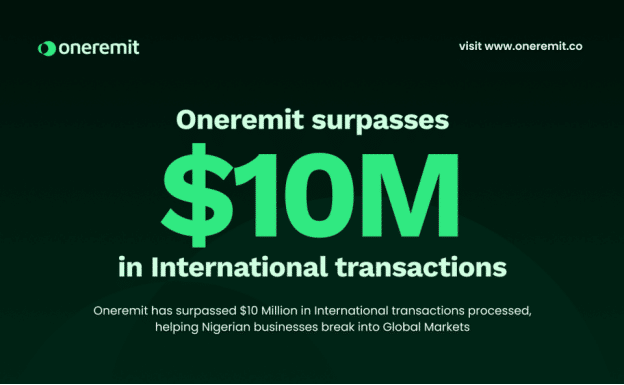Nigeria’s fintech ecosystem is fast proving its relevance on the global stage, and Oneremit’s latest milestone—processing over $10 million in cross-border payments—stands as evidence of that momentum.
What makes this achievement significant is not the figure alone, but the shift in mindset it represents: Nigerian businesses, once constrained by costly, delayed international transfers, are now embracing homegrown solutions that compete directly with global payment giants.
A Catalyst for Nigeria’s Digital Trade Future
For years, the bottlenecks of traditional banking slowed down SMEs and corporates seeking to expand internationally. Oneremit’s growth highlights how digital-first platforms are breaking those barriers, enabling businesses to:
-
Expand supply chains without long waits for payment clearance.
-
Negotiate globally with the confidence of reliable transfers.
-
Scale into new markets with the same efficiency enjoyed by developed economies.
This positions Nigeria not just as a fintech adopter, but increasingly as a fintech innovator exporting solutions across borders.
Investor Signals and Market Potential
Crossing the $10 million threshold shows that local fintech adoption is maturing, a fact that investors and regulators cannot ignore. With payment corridors expanding to 100+ countries, Oneremit is laying the groundwork for scale, compliance, and partnerships that could turn it into a continental leader.
Industry analysts suggest that milestones like this are early indicators of larger structural changes in African trade: as businesses demand faster, cheaper, and transparent solutions, platforms like Oneremit could soon anchor intra-African commerce under AfCFTA while also linking Africa more tightly to the global economy.
Redefining Nigeria’s Fintech Narrative
Oneremit’s trajectory is a reminder that Nigeria’s fintech story is no longer just about domestic payments and mobile wallets. The next phase is global integration—helping Nigerian companies become active participants in international trade by removing friction from cross-border transactions.
The company’s milestone is therefore more than a business win; it is a signal of Nigeria’s broader ambition to lead in financial innovation, set standards for transparency, and build trust with global markets.

